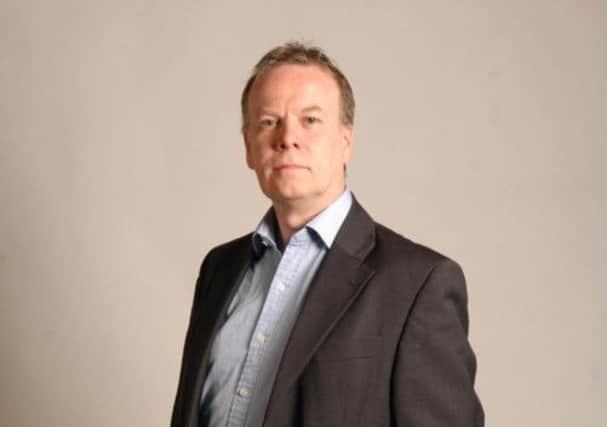Comment: Tesco has few friends to call on


Britain’s biggest grocer is also one of its most successful companies but, as is the way of these things, that does not mean much to those who just do not like its monolithic grip on everything.
From selling fruit and veg to mortgages, it has come to represent the homogeneity of shopping and its scale has pushed many smaller rivals out of business. So-called Tesco towns, where the company dominates the retail sector, are dotted around the country, destroying what was previously a local and varied shopping experience.
Advertisement
Hide AdAdvertisement
Hide AdCoping with community resistance to its latest expansion plans is one thing, but Tesco now finds itself under attack from its erstwhile friends in the City. For a company to have to instigate a £1 billion turnaround plan indicates how big it is and how big its problem has become. While it remains Britain’s most popular supermarket, it is slowly losing its grip with Sainsbury’s due to report figures this week that are likely to show it is snapping at its bigger rival’s heels.
Tesco’s shares are down at a price they last saw seven years ago, a reflection of a fall in sales across the board. It is already pulling out of its failed US project and now there are signs of trouble elsewhere.
Philip Clarke, who took over the helm from Sir Terry Leahy, must wonder if instead of being handed the keys to the candy store he was given a poisoned chalice. He has refurbished hundreds of stores and taken on thousands more staff. But he has to overcome some negative sentiment towards strategy and a feeling that ideas are running thin.
Traders temper joy at US results
THERE was an odd and slightly tempered sense of joy among market traders on Friday after the US confirmed that its recovery was on course – but only just.
Markets wanted a “Goldilocks” result – not too hot, nor too cold – from the latest employment figures and that is what they got.
A slump in new job creation would have been a worry, but a big leap may have encouraged the Federal Reserve to begin turning off the monetary stimulus tap that has been helping to fuel the rise in equities. Even a slight increase in the unemployment rate from 7.5 per cent to 7.6 per cent brought a positive reaction.
So the Dow Jones and FTSE 100 were marked up after a difficult few sessions, but they will remain volatile until there are clearer signs of a sustained recovery. An indication of the nervousness that prevails was the fall in the dollar last week. Another concern overhanging the recovery is that many of the jobs created in the US are temporary and lower paid. Economists and traders will want to see more in the higher income and full-time bracket before the joy turns to euphoria.
‘New’ is key to staying on top
THE technology world is one which absorbs enormous amounts of capital and requires just as much patience. New products may prove to be life-changing, but they can take an age to come on stream and that often means years of losses before revenue comes through.
Advertisement
Hide AdAdvertisement
Hide AdAlso, a supply contract for a big buyer, or a change in the demand for the buyer’s key product, can be the difference between success and failure.
Wolfson Microelectronics in Edinburgh has developed some world-beating stuff and supplied the biggest of consumer product companies. It provides chips for Samsung’s top-selling Galaxy S4 smartphone, but a softening in sales at the South Korean firm prompted a bout of selling in Wolfson shares on Friday.
It happens higher up the chain too. Apple has seen its shares slump on fears that it has run out of big ideas, though chief executive Tim Cook is expected to unveil its iRadio service tomorrow after sealing a deal with Sony Music that completes a package of agreements.
Users will be able to create customised radio stations and the development puts Apple head to head with Google, Pandora and Spotify in the music streaming sector, all of which have been eroding Apple’s iTunes revenues.
The iRadio project is doubly important for Cook, who is also fighting regulatory battles and arguments over tax. But in a consumer electronics company, his primary focus has to be on developing must-have products.
Twitter: @TerryMurden1